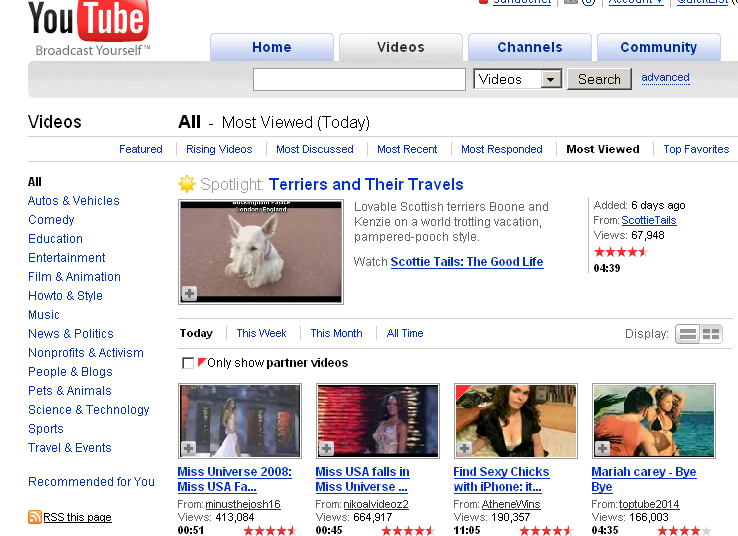Viacom, YouTube agree to mask user data
YouTube will be allowed to redact usernames, IP addresses, and viewing histories from data it must hand over to Viacom as part of a $1 billion copyright-infringement lawsuit.

YouTube will be allowed to mask important user information from records it must turn over to Viacom, Google said in a blog post Monday.
"Viacom and the other litigants have backed off their demand for YouTube user viewing histories," Google said in a statement. "We have reached agreement to anonymize the data."
A Viacom spokesman declined to comment.
The move comes after a federal court earlier this month ordered Google's YouTube to hand over usernames, IP addresses, and viewing histories to Viacom, parent company of Comedy Central and MTV. This ignited a controversy over Internet privacy and put Viacom on the defensive.
Last year, Viacom accused Google's YouTube of violating its copyright in a $1 billion lawsuit. Following the court's order, Viacom was widely criticized for intruding on people's online privacy even though the company had said it never asked to receive personally identifying information.
To this point, the agreement appears to make everyone a winner. Viacom will look like a responsible Internet citizen. Google will no doubt be credited for standing up for Internet rights. Most importantly, YouTube users no longer must fear for their privacy.
But this is certainly not the end of this case. Last weekend, two sources with knowledge of the negotiations between the companies told CNET News that Google was refusing to hand over to Viacom information about what videos YouTube employees have watched or uploaded to the site.
The sources said that the information could help Viacom prove that YouTube has turned a blind eye to the piracy on its site. Google is also likely to ask to see similar records about Viacom's employees. That might show that while Viacom's lawyers were demanding YouTube to remove it's videos, Viacom's marketing managers may have been among those that posted them.
The case is not scheduled to go to court until next year at the earliest.
Some of the more interesting legal wrangling left to go is Google's attempt to depose two high-profile Viacom employees: Stephen Colbert of The Colbert Report and Jon Stewart of The Daily Show.

